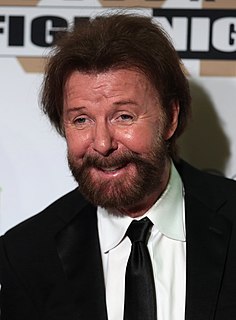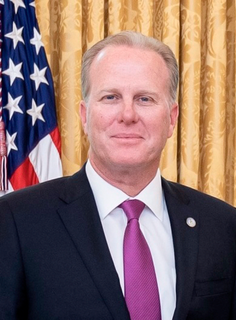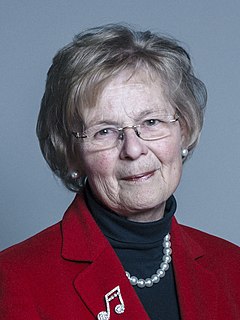A Quote by Eric Adams
As an early advocate for neighborhood policing, I've been heartened to see the tangible impact of police officers spending less time in their station houses and more time on our street corners, developing collaborative relationships with residents and businesses that help us fight and deter crime.
Quote Topics
Advocate
Been
Businesses
Collaborative
Corners
Crime
Deter
Developing
Early
Fight
Help
Houses
Impact
Less
Less Time
More
More Time
Neighborhood
Officers
Our
Police
Police Officer
Police Officers
Policing
Relationships
Residents
See
Spending
Spending Less
Station
Street
Street Corner
Street Corners
Tangible
Time
Us
Related Quotes
When we look at cities across the country, Cincinnati, for example, where they have come under DOJ guidance with a consent decree, we see that, over time, there has been a transformation in the relationship between the police and the community, where now they have a partnership and true collaborative policing, co-policing, to make the community safer overall.
When new businesses open that are trying to attract people with cultural capital or cultural ambitions, they are often more expensive than traditional neighborhood stores and cafés, they offer different products, and they have a different atmosphere. Longtime residents may feel uncomfortable there. Structurally, as a group of gentrifiers gets bigger, there is less room for longtime residents. When it becomes a pattern and you can see the effects, we call that displacement.
Policing has to be done compassionately and consistently. You cannot police differently in Harlem than you're policing downtown. The same laws must apply. The same procedures must be employed. Certain areas at certain times may have more significant crime and require more police presence or more assertiveness, but it has to be balanced.
Tonight, I propose a 21st Century Crime Bill to deploy the latest technologies and tactics to make our communities even safer. Our balanced budget will help put up to 50,000 more police on the street in the areas hardest hit by crime, and then to equip them with new tools from crime-mapping computers to digital mug shots. We must break the deadly cycle of drugs and crime.
I have a letter from a police inspector, retired after some 30 years in rural Derbyshire, alerting me to the potential impact of a total ban on hunting on relationships between the police and the community in rural areas - a particularly significant consideration in current circumstances. Is it, I ask myself, sensible to divert valuable police time to enforce a ban on hunting when they are under so much pressure from violent crime?
In Baltimore they can't do police work to save their lives. Now because of Freddie Gray they're not even getting out of the car and policing corners - they're on a job slowdown, basically. Right now if the police stopped being brutal, if we got police shooting under control, and the use of excessive force, if we have a meaningful societal response to all that stuff, and the racism that underlies it, the question still remains: what are they policing, and why?

































